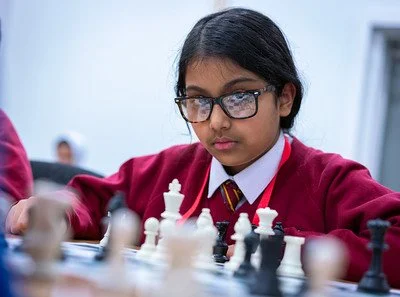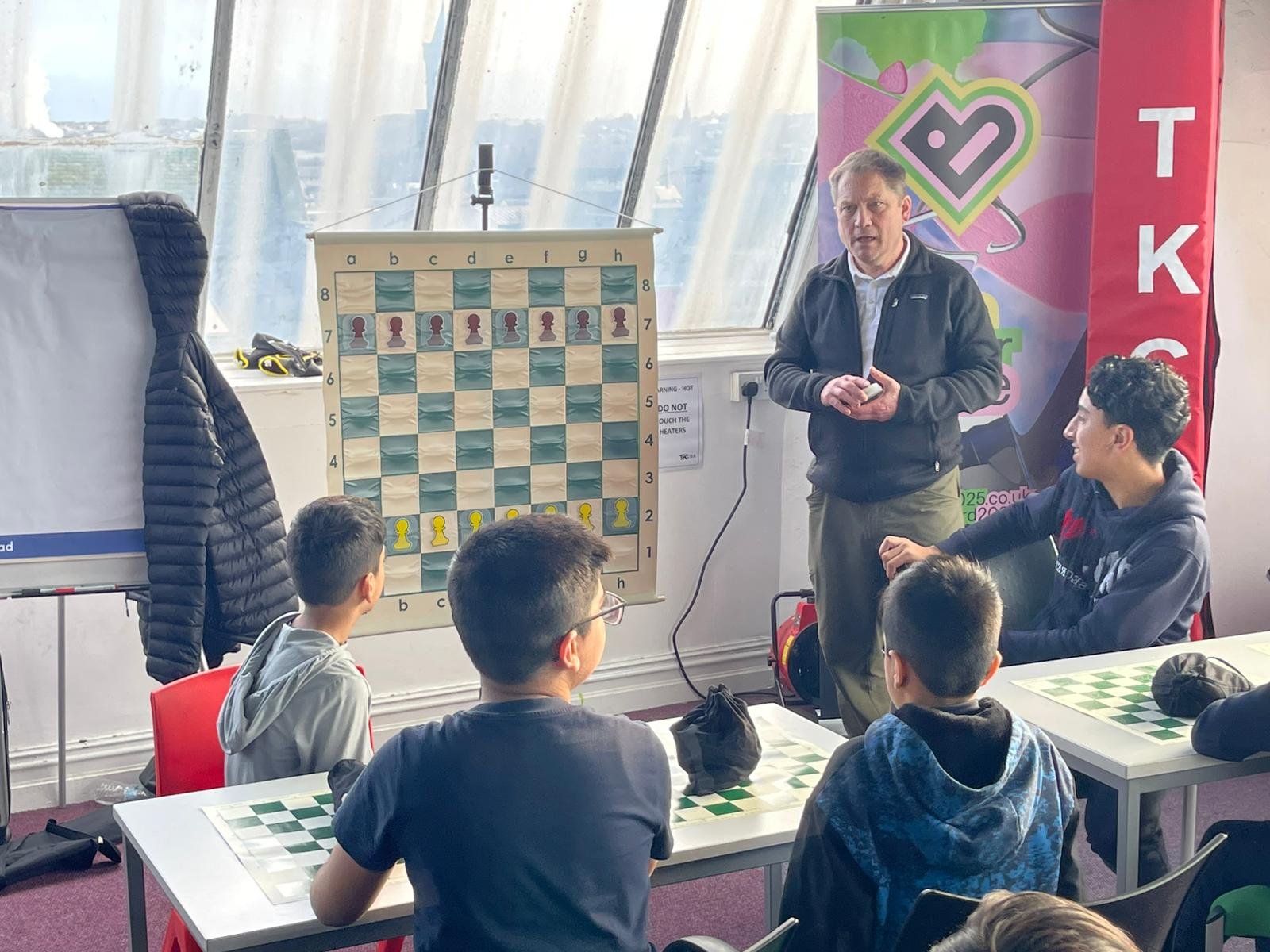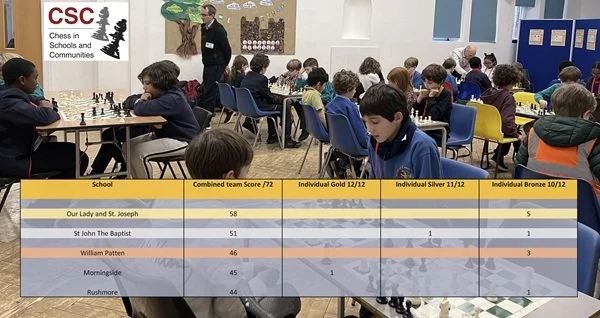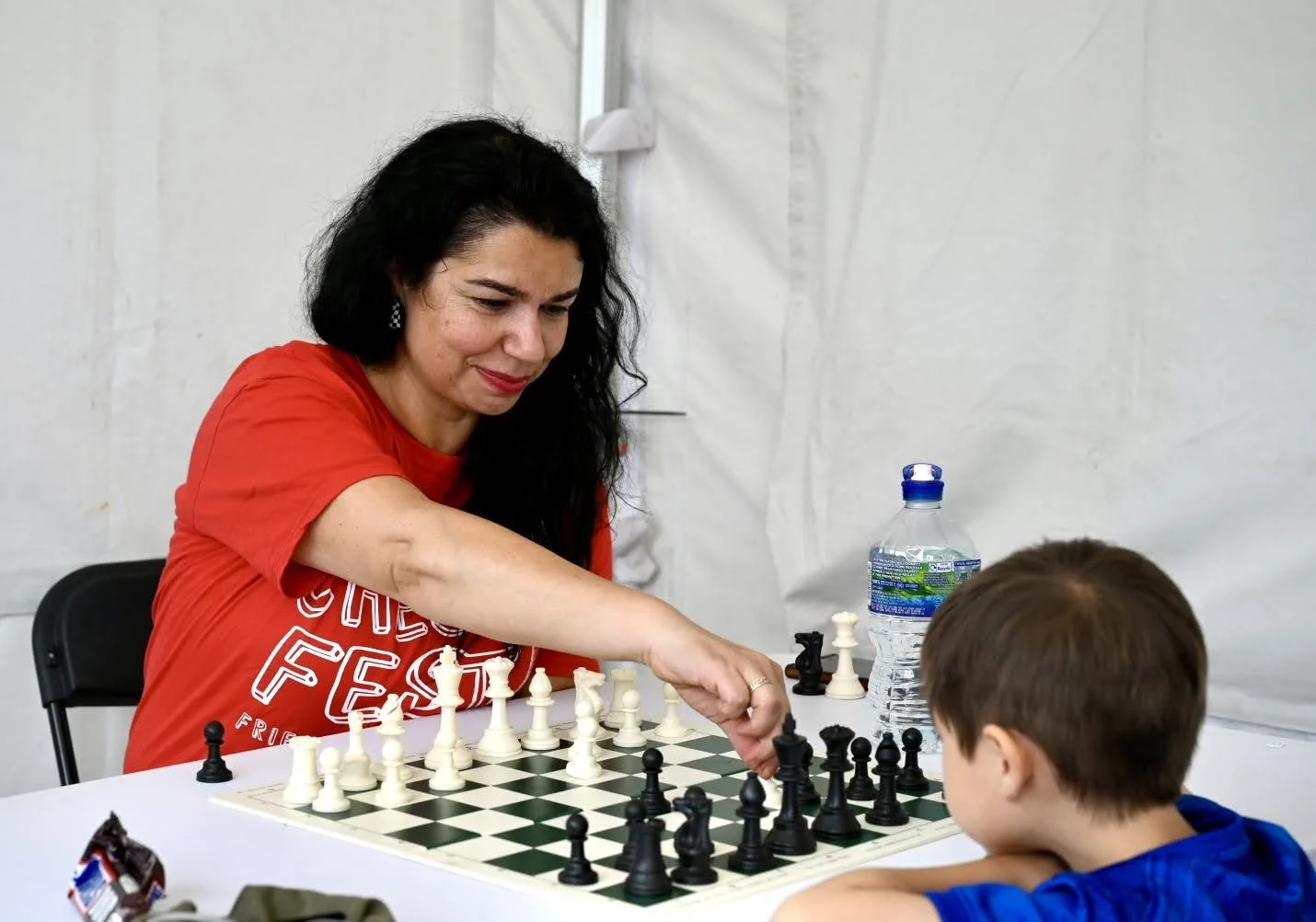
Benefits of learning chess
Chess is a universal game, knowing no boundaries of age, gender, ethnicity or disability. Teaching chess is a low-cost intervention that delivers many benefits, developing both educational and social skills.
Mathematical skills. Learning chess leads to improved logical reasoning, pattern recognition, and cognitive skills. There is a growing body of research linking scholastic chess programmes to greater academic attainment in mathematics. You can read more about how we incorporate mathematical content into our teaching here.
Concentration skills. Playing chess fosters analytical skills, developing the ability to achieve deeper and longer periods of concentration. This in turn leads to greater problem solving skills, essential across STEM subjects.
Resilience. The cerebral reputation of chess boosts self-esteem and augments ‘grit’ – the tenacity to cope with adversity. This important life skill, established at an early age, leads to well-rounded and employable individuals.
Soft skills. Playing chess develops patience and the ability to win and lose graciously. In addition, it encourages participants to empathise with their opponents and to take responsibility for their own actions.
Cognitive function. There is growing interest in how chess can benefit the elderly. Latest research suggests that the improved cognitive function brought about by playing chess can provide a significant protective factor against developing dementia in later life.
A life skill. Chess is a fun activity that can be shared with friends at school or with siblings, parents, and grandparents at home. The game can become an intellectually stimulating hobby that can last a lifetime.
For more information on academic studies into these benefits of chess, please visit our research page. To find out how CSC delivers these benefits to children in schools across the country, please read about the impact of our Schools’ Programme here.
Would you like to bring these benefits to your school or community? Are you interested in teaching chess? Sign up to become a CSC tutor here.




